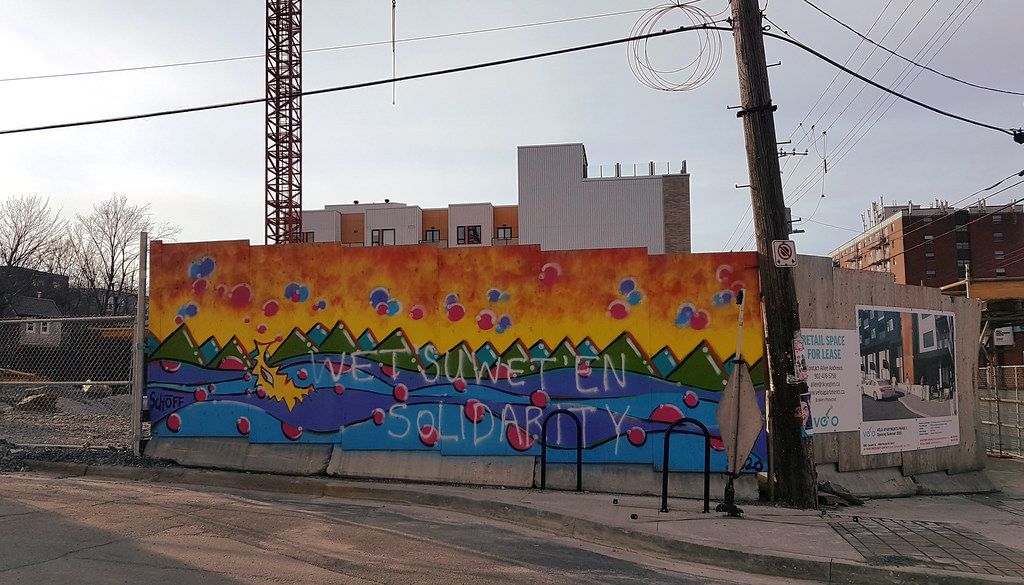|
A series on issues that beg the question.
Jodi Bruhn| May 7, 2020
Indigenous women to the barricades: a book reviewRauna Kuokkanen: Restructuring Relations: Indigenous Self-Determination, Governance and Gender. (Oxford: Oxford University Press, 2019).
This review first appeared in the Spring 2020 edition of The Review of Politics. Before the state, there were fully functioning societies over which European powers asserted their sovereign authority, maintaining it through violence. As Sami scholar Rauna Kuokkanen reminds in her new book, the concept of “Indigenous peoples” was born of state domination. Likewise, the right of Indigenous self-determination: itself the product of colonialism, it has long been defined in terms acceptable to states. The book’s goal is to provide an “Indigenous feminist critique of self-determination, structures of Indigenous governance institutions, and their ability to address violence, especially violence against Indigenous women." The author seeks not simply to supply an Indigenous women’s perspective, but to “interrogate the taken-for-granted political categories of nation, sovereignty, and state” in feminist terms. She enlists both gender regime theory and a comparative empirical study of Indigenous movements and institutions in Canada, Greenland and Scandinavia to posit that efforts to realize self-determination institutionally are “always tempered or constrained by what states will or won’t accept as a palatable form of Indigenous political autonomy in a specific context." Viewed solely as a right, self-determination can easily be ignored if the vital interests of the settler state require it. Beyond this, the self-determination of Indigenous individuals too often is sacrificed to a repurposed nationalist ideological agenda pressed by male leaders. Kuokkanen seeks to infuse the concept of Indigenous self-determination with more and richer content – one of the major contributions of this book. She posits self-determination as a foundational value from which Indigenous people might “restructure all relations of domination premised on inequality and injustice.” At its centre, she offers the norm of integrity manifested in two forms: integrity of the land and of the individual from domination, including “freedom from bodily harm and violence." Informed by this understanding, the author assesses existing institutions in the three regional contexts. She finds them falling well short, concluding that Indigenous self-government institutions fail to protect us, either from the “logic and violence of settler colonialism or interpersonal sexual and physical violence and coercion." And indeed, there can be little wonder why: either imposed by or negotiated with settler states, such institutions as the Sami Parliaments in Norway, Finland and Sweden or First Nations bands and governments in Canada derive their theoretical and legal underpinnings from states. Though appearing to realize Indigenous self-determination, such institutions in fact subvert it, where self-determination in its fullest sense requires “restructuring of all relations of domination." And this in Kuokkanen’s view is where Indigenous women should play a far greater role. Indigenous women have taken part in self-determination movements, but have gained little recognition for it. The labour has been divided onto tracks of self-government and self-determination (such things as land rights) championed by male leaders and social or gender issues (health, education and child welfare) deemed women’s terrain. Indigenous institutions have further inherited gender regimes through longstanding legal rules such as the loss of Indian status in Canada or of reindeer-herding rights in Sweden by Indigenous women who “married out” to non-Indigenous men. As an alternative to current (male-led) attempts at self-government, Kuokkanen calls for a “rematriation” of Indigenous governance. Arguably, this idea is the one constructive aspect of a volume aiming to offer a critical deconstruction. It too centres on Indigenous women. Where sexism was the Trojan horse brought into Indigenous governance by the state, rematriation again would place “Indigenous women at the centre of nation-building by reclaiming women’s leadership roles, political power, and authority." This reviewer’s vantage point is from Canada, informed by direct work with both Indigenous governing institutions and the federal Crown in that country.... Full review: The Review of Politics. Vol 82(2), Spring 2020. |
Posts in the SeriesMay 2020
Indigenous women to the barricades: a book review September 2017 Indigenous rights are human rights: a reminder from Argentina March 2017 On surfing and strawberry tea: how your spring break could promote reconciliation September 2016 The right guy at the right time: Gord Downie's contribution to reconciliation Janvier 2016 Encore une Commission... June 2015 Munich, 1933: The good bureaucrat, Josef Hartinger November 2014 Addressing the language of the Aboriginal/settler relationship June 2014 From big to better data through indigenous data governance January 2014 Toast to those who showed courage in public life October 2013 Excellence is everywhere: Blueprint 2020 and the future of the public service April 2013 Time to investigate options for resource revenue sharing December 2012 Speaking of accountability: examining the relationship of First Nation voters to their governments About the AuthorJodi Bruhn is the director of Stratéjuste Canada.
|
Stratéjuste
|
WHAT our clients have said
|


